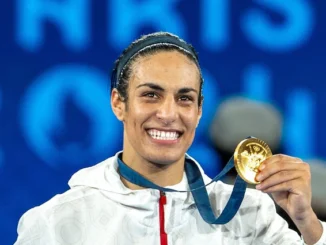
As the world gears up for the Paris 2024 Olympic Games, a significant change in the athletics competition format has been announced: the introduction of the repechage round for all individual track events ranging from 200m to 1500m, including hurdles events. This modification is expected to bring more excitement and opportunities for athletes, ensuring a more dynamic and engaging experience for spectators. In this blog post, we’ll explore what repechage is, how it will work at Paris 2024, and what it means for the athletes and the overall competition.
What is Repechage?
The term “repechage” originates from rowing and wrestling and translates to “second chance.” In the context of sports, repechage allows athletes who have been eliminated in the early rounds of a competition another opportunity to qualify for later stages. This system ensures that competitors who may have had an off-performance or faced tough competition early on still have a shot at progressing further in the event.
The Introduction of Repechage at Paris 2024
World Athletics President Sebastian Coe announced in July 2022 that the repechage rounds would be included in the Paris 2024 Olympic Games. This decision marks a departure from the standard competition format, aiming to give more exposure to athletics during the peak Olympic period. Coe emphasized that the repechage rounds would be carefully scheduled to ensure that every event retains its share of the spotlight.
How Will Repechage Work?
In each first-round heat of the designated events (200m to 1500m, including hurdles), a certain number of athletes will automatically qualify for the next round by finishing in the top positions. Those who do not secure an automatic qualifying spot will get a second chance through the repechage heats.
This new system replaces the previous format where athletes could advance based on the fastest times outside the automatic qualifiers. Instead, all athletes who do not qualify automatically will compete in repechage heats, and the top performers from these heats will progress to the semi-finals. This means that every athlete will participate in at least two races, providing them with more opportunities to showcase their skills and resilience.
Implications of the Repechage System
The introduction of repechage rounds means that each event will now consist of four rounds: the first round, the repechage round, the semi-finals, and the finals. This change aims to make the competition more inclusive and fair, giving athletes multiple opportunities to advance and perform their best.
However, not all events will feature repechage rounds. The 100m event will retain its preliminary heats before the first round, and events from 3000m and longer distances will not include repechage due to the limited recovery time required between races.
Schedule of Repechage Rounds at Paris 2024
Here is the schedule for the repechage rounds at the Paris 2024 Olympic Games:
Saturday, 3 August
- Morning Session: Women’s 800m repechage
- Evening Session: Men’s 1500m repechage
Monday, 5 August
- Morning Session: Women’s 200m repechage
- Morning Session: Women’s 400m hurdles repechage
- Morning Session: Men’s 400m repechage
Tuesday, 6 August
- Morning Session: Women’s 400m repechage
- Morning Session: Men’s 110m hurdles repechage
- Morning Session: Men’s 400m hurdles repechage
- Morning Session: Men’s 200m repechage
Wednesday, 7 August
- Morning Session: Women’s 1500m repechage
Thursday, 8 August
- Morning Session: Women’s 100m hurdles repechage
- Morning Session: Men’s 800m repechage
Impact on Athletes and Spectators
Benefits for Athletes
The repechage system offers several advantages for athletes:
- Second Chance: Athletes who may have had an off day or faced exceptionally tough competition in the first round get another opportunity to qualify.
- Increased Exposure: Competing in multiple rounds gives athletes more chances to be seen by spectators, media, and potential sponsors.
- Fair Competition: The system ensures that qualifying isn’t solely dependent on one performance, but rather on consistent excellence across multiple heats.
Benefits for Spectators
For spectators, the repechage rounds add a layer of excitement and unpredictability:
- More Action: With additional heats, fans get to see more races and more of their favorite athletes in action.
- Dramatic Comebacks: The potential for athletes to bounce back from early setbacks adds to the drama and excitement of the competition.
- Engagement: The new format keeps spectators engaged throughout the event, with more opportunities to cheer for underdogs and witness unexpected outcomes.
Conclusion
The introduction of repechage rounds at the Paris 2024 Olympic Games is a significant change that promises to enhance the competition for both athletes and spectators. By providing a second chance for competitors and adding more races to the schedule, the repechage system aims to make the Olympic athletics events more inclusive, fair, and exciting. As we look forward to the Games, this innovative format is set to bring a new level of intensity and engagement to the world’s premier sporting event.
Stay tuned for more updates on the Paris 2024 Olympic Games and the exciting developments in the world of athletics!




Be the first to comment